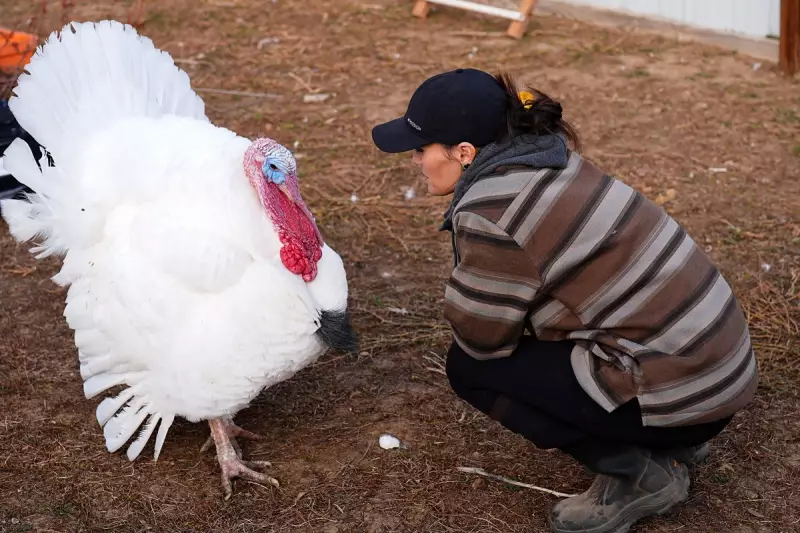
A growing number of Americans are embracing an unconventional Thanksgiving tradition by choosing to 'adopt' turkeys rather than serve them for dinner.
The Rise of Turkey Adoption Programmes
This heartwarming trend sees families sponsoring rescued birds through farm animal sanctuaries across the United States. Farm Sanctuary, with locations in New York and California, is believed to have pioneered this concept when it launched the first programme of its kind back in 1986.
Gene Baur, the organisation's president and co-founder, recalls that initially the public was confused both by the programme and the very idea of rescuing farm animals. However, in the nearly four decades since, the sanctuary has rescued thousands of turkeys, and public support has grown substantially, with donations sometimes reaching hundreds of thousands of dollars in a single year.
Meet Gus: A Turkey Living the Good Life
At the Luvin Arms Animal Sanctuary in Erie, Colorado, a particularly fortunate tom turkey named Gus exemplifies this movement. Residing approximately 25 miles north of Denver, Gus was pardoned by the governor and arrived at the sanctuary in 2023.
During Thanksgiving week, while millions of other turkeys are slaughtered across the country, Gus enjoys a markedly different experience. He roams freely across a sprawling pasture, receiving frequent attention from sanctuary staff who stop to pet him, hug him, and even give him affectionate pecks on his red face.
The sanctuary's website highlights Gus's talkative personality as part of its sponsor-a-turkey programme, which encourages the public to donate for the birds' care and reconsider their holiday customs.
How Turkey Adoption Works and Its Impact
For a $25 donation at Luvin Arms, participants receive an adoption package including a certificate, a photo of their turkey, and either a virtual or in-person visit. Kelly Nix, the sanctuary's executive director, reports that since launching their programme in 2022, sponsorship numbers have doubled annually.
This year, they are on track to reach their fundraising goal of $18,000. These vital funds have supported significant improvements, including expanding the turkeys' outdoor pasture area, covering feeding costs, and facilitating more rescues.
The money also helps with substantial veterinary bills, which can run into thousands of dollars due to medical complications common among turkeys from factory farms. These facilities breed birds to grow exceptionally large in a very short period, creating health challenges. By comparison, wild turkeys typically live three to four years, according to the National Wild Turkey Federation.
Some adopters feature their turkey's photo on their Thanksgiving table, while others gift adoptions to friends or family members as an alternative holiday present.
More Than Money: Education and Changing Perceptions
Sanctuary leaders emphasise that these programmes serve a purpose beyond fundraising or direct animal care. They provide crucial education about factory farming conditions and highlight the unique personalities of turkeys.
Kelly Nix explains that even prompting people to pause and reconsider their traditions represents significant progress. "Even if it makes you stop and double think what it is you're about to do," she said, "Or that you're like, 'wow this is a life of a sentient being,' for us that's a conversation starter."
At Barn Sanctuary in Chelsea, Michigan, which began its similar programme in 2023, staff members focus on showcasing the birds' distinct characters. Chase DeBack, the advocacy, education and engagement coordinator, describes residents with the familiarity of close friends, noting their individual preferences and social behaviours.
"You only hear about kind of the dead turkeys," DeBack observed. "And so we really wanted to shine a light on the unique personalities that turkeys have and how loving and caring they are for humans and for each other."
Gene Baur of Farm Sanctuary offers a thoughtful perspective on tradition itself: "We grow up with certain traditions. But just because something is a tradition doesn't mean that it needs to remain as a tradition."
This growing movement demonstrates how holiday customs can evolve toward greater compassion, offering tens of millions of turkeys slaughtered annually a hopeful alternative, one adopted bird at a time.





